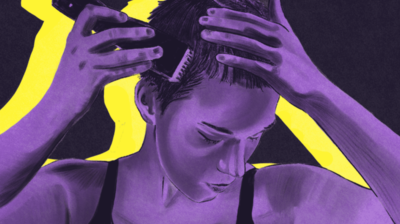The challenges I have faced ‘coming out’ as autistic
Whether coming out as LGBTQIA+ or autistic, Davin feels that people may not understand and that more support is needed for both.

When people think of ‘coming out’, they may think of a person they know who is part of the LGBTQAI+ community sharing their sexuality, and the challenges that doing so poses for today’s generation. In my own experience as someone with an Autism Spectrum Disorder (ASD), I feel coming out as neurodivergent can raise similar challenges.
Autism and the challenges of social acceptance
For me, if someone were to mention the struggles of ‘coming out’ from the LGBTQ+ perspective I feel I can understand part of the struggles.
As someone with ASD, I feel as though I can understand the issues that are faced with revealing something publicly which is perhaps not as understood as it should be, and that is stereotyped in certain circumstances.
The isolation of being neurodivergent in a small town
Growing up in a small town such as Listowel, Co. Kerry almost all my classmates and friends were beginning to explore their footballing talents and their free time was spent socialising at football games. I, on the other hand, spent most of my time taking part in activities that were rather different to my peers. I certainly never excelled in kicking football during the school lunch, instead, I took to reading about topics I had a particular interest in.
Secondary school came like a bolt out of the blue for many people at that age, for me it came faster than the speed of light itself. In the very early years of the Junior Cycle when social media was being discovered by folk in class, teenage discos were commonplace on a Friday night and it was a time that I have bittersweet memories of.
The Leaving Certificate years were very complex as my peers were discovering romantic relationships. Many spent a considerable amount of time glued to the screen of their iPhones discussing the approaching Leaving Cert holiday. This time was emotionally draining for me.
Surviving secondary school with autism
See, back in my school days ASD was never really spoken about due to the lack of education on the diagnosis. If anyone spoke about their Autism diagnosis, they were outcast from the remainder of the group and seen as, to some degree ‘weird’.
Even if the class suspected one of their classmates to be ‘on the spectrum’, they were almost immediately discouraged from socialising with them. Word would spread like wildfire and they would become the laughing stock.
As I grew older, and to some degree wiser (although my friends might refute the wiser part), I began to understand my diagnosis more. I began to understand the who, what, where, when, why and of course, the how of ASD and, the struggles that many young people with a similar diagnosis, or indeed some emerging signs and symptoms might be facing.
Any time I read about someone revealing their sexuality I immediately become very proud and I think to myself, “That’s very similar to what we face when revealing our autism diagnosis”. The social stigma attached to both can make someone consider keeping this information to themselves.
Overcoming stigma and promoting understanding of autism
That is why I am conscious of society’s view of autism and can agree with the need to broaden the perspective of the public. It is quite a commonly diagnosed condition nowadays and one that needs to be understood more by society. The promotion of its understanding in schools and colleges has seen some better understanding for society to understand more about ASD.
Any time someone reveals their ASD diagnosis, perhaps we should pause for a moment and reflect. That mini heart attack moment we are so used to when hearing about ASD is adding to the social stigma. Many of the people I know with ASD and of course, myself are very understanding of our diagnosis and the challenges we face day-to-day.
Why not consider learning more about ASD and how you may be able to better support and understand that person you know with the diagnosis? Sure, it all starts with me, with you and with the millions of people worldwide with ASD.
Well, done to everyone who has, thus far publicly cited their diagnosis and who have done so in true and remarkable ways.
Feeling overwhelmed and want to talk to someone?
- Get anonymous support 24/7 with our text message support service
- Connect with a trained volunteer who will listen to you, and help you to move forward feeling better
- Whatsapp us now or free-text SPUNOUT to 50808 to begin.
- Find out more about our text message support service
If you are a customer of the 48 or An Post network or cannot get through using the ‘50808’ short code please text HELLO to 086 1800 280 (standard message rates may apply). Some smaller networks do not support short codes like ‘50808’.






